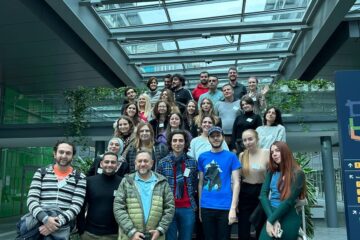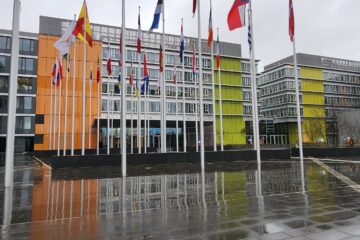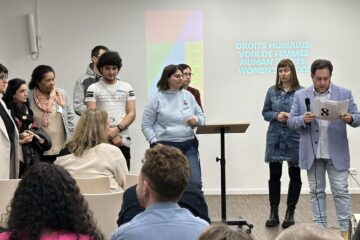Background of the WominCreativePower proiect
WorseninCreative Power is a 2 year project founded in frames of the Erasmus programme – Luxembourg ish NA Anetore. It seeks to acidress gaps in the integration process of migrant and refuges women, seekin g to improve their employability and establish and strengthen ties with their new communities. WICP aiso cims to contribute to the development of new design and creotive skills through tandem troinings and int ercultural dialogue. The project deploys the notions of inclusivity, diversity, and collaboration in Creative a nd Cultural industries (CCI) by encouraging immigrants to develop their creative ideos into work, inclusio n and selt-fulfilment possibilities. Therefore, WICP seeks to make an important contribution to the füll inte gration of migrant and refugee women in their receiving communities and labour markets by promoting he intercultural and diverse enrichment of European societies.
The partner orgonisations involved in the project are from tuxembourg (FSt), Sweden (Swideas), Hungary (Foundation of Subjective velves) and Siovenia (Povod, Institute for Culture and Development of internati onal Relations in Culturo] therefore ail the dato mentioned in the post is about those 4 countries and the migrant women living there.
integration Process of Migrant Women in Europe
in the past years the number of refugees and migronts in furope hos started to decrease, However, the in tegration of those who have arrived in the EU since 2015 remains a common chollenge for the host Europe an communities. According to an articie published by the European Website on integration migrant and r efugee women tace a double disadvantage in the integration process, since they lace the double burden of being both women and migrants (Ewst 2018). Moreover, it has been proven statistically that migrant an d refuge women face greater economic inequalitios compared to their male counterparts: bigger gende r gaps in the EU-28 employment rates were observed among persons born outside of the EU, amounting t 6 74.3% lor men and 55.3% for women (Ewsi 2018), rincily, studies indicate that women “trequently receive less integration support than men, both in terms of language training and active labour market measure S* (Ewsi 2018).


